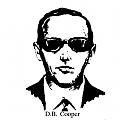My review of "Enter the Dragon" is up at Brownpundits.
Excerpts:
Russel Spurr was a British-Australian journalist who spent most of his life reporting from East Asia (20 years in Hong Kong), during which time he made many trips to China and Taiwan and interviewed multiple veterans of the Chinese intervention in Korea to write what was probably the first book covering the Korean war from the Chinese perspective (published in 1988). The book (Enter the Dragon. China’s undeclared war against the US in Korea 1950-51) provides a great introduction to the “other side” of the Korean conflict. Writing in journalistic style, he freely recreates conversations and scenes that obviously rely on accounts of survivors as well as his own imagination, but that does not mean he has not done his research. He knows his history and the bare facts are always accurate. And whatever the book lacks in typical military history details, it more than makes up in the form of vivid anecdotes that really bring the war to life.
Far too many Western accounts of the war portray the Chinese as some kind of undifferentiated mass of “Reds” who come across the mountains in human waves and overwhelm the Americans by sheer force of numbers, getting tens of thousands of their own robot soldiers killed in the process. This is very misleading, and the most valuable contribution of Spurr’s book is to put such caricatures to rest. The Chinese intervention in Korea was well planned and methodical. Lacking modern weapons and logistical support, the PLA nonetheless was an organized force, with high morale, great elan and some excellent leaders. Marshal Peng Dehuai had already made his mark in the Chinese civil war, and thanks to interviews with some of his staff officers, Spurr is able to provide a detailed picture of his leadership and initiative in Korea. Badly equipped and lacking all modern amenities, he (and the Chinese leadership in general) were still determined not to allow the Americans to conquer all of Korea. They knew their own weaknesses and compensated for them by using vast networks of coolies to carry supplies, by using captured supplies, by marching great distances on foot along mountain tracks to surprise the enemy, and by attacking at night to nullify America’s superior firepower and total domination of the air. They studied their opposite leaders and were well aware of MacArthur’s island hopping exploits in the second world war (when the North Koreans failed to break into the Pusan pocket, Chinese staff officers fully expected MacArthur to go for a bold amphibious landing, the only question was where).
....
The book is full of fascinating anecdotes, but the one that will forever stay in my mind is of Colonel Wong passing through the frozen wastes of North Korea at the height of winter and being surprised by the site of dozens and then hundreds of snowmen scattered across the land; until his North Korean driver tells him that these are Chinese coolies and soldiers who froze to death in the arctic cold and have been covered by snow. The other is his description of the last days of the great Marshal Peng Dehuai. Marshal Peng, a straight shooting peasant revolutionary, made the fatal mistake of questioning Mao’s actions during the Great Leap Forward. For this, he was removed from his posts, arrested and then repeatedly beaten in the course of 130 brutal interrogations until he died under torture after many years of imprisonment.
...
Spurr has the war correspondents disdain for the senior brass of his own army and has a special dislike for MacArthur, so he may be a little unfair when it comes to the supreme commander, but overall this is a fair and balanced book and one that fills a real gap in histories of the Korean war. In a way, Spurr was lucky he got into China to research this when the Chinese were repudiating the Cultural revolution and Maoism and his interlocutors were able to talk to him relatively freely. That degree of openness may not be possible now. It is possible that other researchers have dug up material that was not available to Spurr when he wrote this book in the 1980s, but I am not aware of another (English language) book that presents the Chinese side in this manner. Definitely worth reading.






Bookmarks